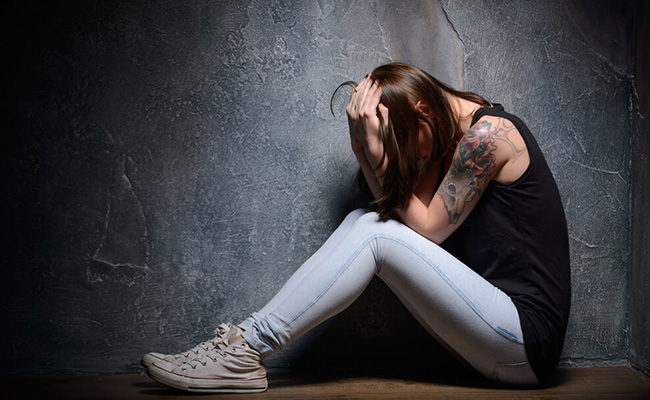This is part-one in a three-part series about overcoming grief in recovery.
Death Is A Part Of Life – Though We Would Rather Not Think Or Talk About It
Loss is an unfortunate part of the human experience. Though we wish it weren’t so, everyone we love and care about will one day die and depart from this earthly realm. This includes our parents, friends, relatives, spouses, romantic partners, and even our beloved pets. We too will cease to exist one day, leaving behind the people who love us most to grieve our loss.
Yes, death is a part of life – and it’s something most of us would prefer not to think or talk about.
However; facing the reality of death and the subsequent grief it brings (and talking about it) is important for those who are in recovery. Losing a loved one can be an especially devastating experience for someone who is recovering from drug, alcohol, or sex addiction. Even losing a pet can be earth-shaking.
If you are currently going through a period of grief, we want to help make the process a little easier. If you aren’t presently dealing with some kind of loss, we believe the suggestions offered in this blog post will prepare you for such an event.
Please keep in mind that if you are experiencing grief and you are also struggling with an addiction, DARA Thailand can help. Just contact us and we will tell you how our specialized programs can get you on the right track.
Losing A Loved One Can Be A Trigger To Return To Active Addiction
Loss can become a very strong trigger for someone to use drugs or alcohol or act out sexually. Indeed, the loss of a loved one forces recovering people to navigate some very painful feelings and many feel ill-equipped for such a brutal undertaking.
If you have spent much of your life turning to drugs, alcohol, or sex to numb your feelings and cope with the stressors of daily living, it can be almost instinctual to return to your addiction during a grieving period. The compulsion to engage in self-destructive behaviors can be all-consuming during extreme emotional events. This is because when you are vulnerable, you can easily buy into the illusion that sex, drugs, or alcohol are a solution to your current state of being. The thing is, addiction always makes grief worse. It never helps the situation.
You simply cannot work through grief and manage an addiction at the same time. The addiction will inevitably take over, which will prolong the grieving process. If you choose to turn to drugs, alcohol, or sex to once again cope with painful feelings after you lose a loved one, you will quickly find yourself drowning in a sea of sorrow from which there is no escape.
No Matter How Badly You Are Hurting, Recovery Has To Come First
If you are currently grieving, we hope you have been able to maintain your recovery throughout this difficult time. If you have not been able to continue to stay abstinent, we encourage you to seek help right away and recommit to your recovery process. Remember, our team of experts at DARA Thailand can assist you with overcoming your addiction and dealing with grief.
We understand that grieving the loss of a loved one can be a soul-crushing experience. It may even feel like you can’t continue to live life without some kind of crutch to carry you through the day. However; we want you to know that you can make it through this – without engaging in your addiction to cope.
If you aren’t presently experiencing grief, make the commitment to yourself now that no matter what comes, you will continue to walk the road of recovery and live life on life’s terms. That way, when you do lose a loved one, you will remain steadfast to your commitment and walk through the grief without relapsing.
Please read Overcoming Grief In Recovery – Part Two to learn about the stages of grief.
CLICK HERE to get a Free Confidential Addiction Rehabilitation Assessment.














